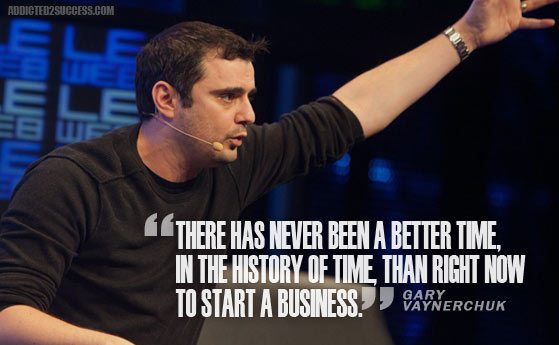Life
10 Life Lessons Learned From Suddenly Quitting My Job

We all feel lost from time to time. Society has a way of beating us down with its arbitrary life rules and expectations. Just when we think we have it nailed, the rug can be pulled from below and we end up with a crushing realisation that actually, we don’t have it all figured out.
Questions arise, and you find yourself doubting your very existence.
“Am I in the right career?”
“Do I have the ability to rise through the ranks and increase my income?”
“Is this it for me?”
I felt all of this and more. Until the age of 31 I felt trapped in a menial customer service position that began to eat away at my soul. I wasn’t sure what I wanted to do, but I knew with absolute certainty that something had to change.
It did. When you back an animal into the corner it has no option but to come out fighting.
I quit my job and it was the scariest moment of my life. Would I sink or swim?
Well, 2 years later I have my own guitar tuition business and while it definitely wasn’t easy – the lessons I have learned on the way will be invaluable as I continue moving forward.
Hopefully, if you’re in a position where you are seeking to change your career or to start your own business, you can take a little something from the following 10 life lessons, such as…
Life Lessons Learned From Suddenly Quitting My Job
1. There is no such thing as the right time
Do you have a crazy life changing idea that you are putting off because the time just doesn’t feel right? You’re not the only one. I wrestled with my mind for years before I finally plucked up the courage to quit my job, and you know what?
It was a colossal waste of time.
Preparation is overrated. No matter how much thought, planning and care you put into something, you will always come up short.
Life doesn’t give a damn about how prepared you are. It wants people with the balls to make something happen.
2. People will think you are crazy but that’s ok
We’re fragile beings. Our ego likes to protect our little selves from all the bad people in the world. Even though we don’t like to admit it, many of our life decisions are taken because we care about what other people think.
It’s human nature.
After quitting my job it didn’t take long for the naysayers to crawl out of the woodwork and mock me for having ideas above my station. I heard it all;
“You can’t do that. How will you survive?”
“You should have found another job first. You’ll regret it.”
“You’re insane!”
But you know what? You soon learn to ignore the haters and it’s impossible to please everyone, so in future it’s best to just live life by your own standards.
3. You learn to become responsible for your own actions
Doing something as drastic as quitting my job without really thinking it through, led me to a profound realisation;
This is all down to me.
I don’t have work colleagues to drag me down or a narcissistic manager to crush my soul on a daily basis. There is no one to blame but myself if this goes down the toilet.
That’s the beauty of taking control of your life; you’re fully in the driving seat and the motivational surge you receive as a result of grabbing life by the balls is astounding.
4. Every problem faced becomes an end of level boss to defeat
Is life easy once you quit your safe job for a life of uncertainty? Hell no. It feels like an endless assault on the senses. You’ve heard of treading water? Well imagine treading treacle.
Just keeping your head above the surface is a herculean task by itself. Forget trying to run a fledgling business. Putting food on the table and paying the rent suddenly become the only goals worth bothering with.
But you learn to cope.
And then you look for the next challenge that passes your way. You defeat that one too.
In fact, you quickly learn that life isn’t that hard after all. It’s just a videogame and you’ve got invincibility mode enabled.
You’re bulletproof.
5. Life isn’t a linear process – there is no beginning, middle and end
I’ll admit; I believed that once I picked up a few students and started making a bit of cash, everything would sort itself out.
How naïve…
Just when things seemed to be moving forwards I would suffer a setback. The few students I had on my roster suddenly quit. No feedback, no apologies, nothing.
Gone, just like that.
And then I waited.
It took me 6 months before I found a few more students to take their place. That’s a long time to wait around without any proper income. Even now, I have good months and bad months, but I have come to realise that it’s all about the process, not the destination.
Life is too big to concern yourselves with. The present moment is all that counts.
6. You can make up the rules as you go along
Who in their right mind would give up a safe job, their own apartment and independence for an uncertain life as a guitar teacher?
On the face of it, it’s crazy. But I’ve always teetered on the edge of conformity – peering over the edge to see what is possible.
Who quits their job at the age of 31 and moves back home? Who starts a degree at the same time because it seemed like a good idea? Who fills their days with German study sessions and rigorous guitar practice when they aren’t working?
Me. I do that, because I can.
I’ve learned that confusing people with your day to day activities just means that you’re doing something right with your life.
7. Nobody can order you around, but you still need discipline
I have worked under some ridiculously inept managers in my time. Borderline psychopaths, bullies, bumbling buffoons and many other things that begin with the letter ‘B’; but they all have one thing in common…
They can’t tell me what to do.
Except, this led me to a strange realisation; without the structure and discipline of a full time job I became lazy. I needed my alarm clock and the threat of dismissal for not turning up on time to fuel my day.
This is something I still struggle with. I am slowly improving but the procrastination monster still rears its ugly head from time to time.
I’ve learnt that whatever we choose to do with our lives requires discipline to achieve greatness.
8. Fear is necessary for growth
I’ll let you in on a little secret.
Life scares the hell out of me.
I used to think that there was a big difference between successful people and the likes of me. That somehow they were born with superpowers that enable them to surge through life with confidence and swagger.
This couldn’t be further from the truth. Fear doesn’t discriminate. It engulfs us all. In fact, successful people experience more fear than anyone else because they are putting their balls on the line every single day
If you’re feeling scared then it’s a good sign. You are pushing yourself further; stretching your comfort zone and experiencing something new and exciting.
Accept and embrace fear because it’s the friend of exceptional people.
9. There will never be enough hours in the day
We always want more.
If it’s not money, then it’s time.
If it’s not time, then it’s success.
If it’s not success, then it’s respect.
If it’s not respect, then it’s money. It’s a vicious cycle – an addiction.
Life is a never ending quest to seek more of what we already have. But here is a novel idea… what would happen if we simply made better use of what we currently have? Of course, seeking to improve ourselves or our life situation is desirable but what is the point of acquiring more money if you can’t manage your current finances?
What’s the point in more time if you don’t make use of what you currently have?
What’s the point in building a reputation if you allow complacency to set in?
Everything; time, money and respect must first be earned and then utilised effectively. Do you only have $50 in your account? Stop binging on fast food and use that money wisely.
Do you only know a few people who trust and respect you as a businessperson or as a brand? Word of mouth is powerful; keep these people on side and you’ll reap the rewards later.
Do you only have 2 hours in the evening to spend with your loved ones? Make those 2 hours count.
Successful people make the best of what they have whilst continually striving to improve.
10. Excellence is 100% – everything else is failure
For years I coasted through life – doing the absolute bare minimum. Hoping that no one would notice how my whole existence was a master class in incompetence and laziness.
Everything from playing the guitar, my job, training in the gym and even my social interactions were all accomplished with this mentality. I felt like a fraud.
I needed to change, and fast. To do this I had to take a long, hard look at myself and accept that the only way I was going to be able to achieve anything is with complete transparency.
No more lies. No more covering up the cracks. It was time to get brutal.
I’ve discovered that success is a habit forged through a combination of time and effort. There are no shortcuts. Is it possible to put 100% into one area and then coast in another? For a while maybe, but eventually the lesser activity will start dragging the others down.
Consistency is the key. Eliminate the fat from your life and put 100% into whatever remains. Cement the habit and don’t settle for second best.
Since implementing this mentality my output has improved dramatically. My guitar playing has improved. My business has more students than ever. I’m finding that my studies and my assignments are getting easier. I am training harder than ever before and my diet is in check.
It’s not a coincidence.
By suddenly quitting my job I have finally learned how to live my life.
Try it. See what happens.

Did You Know
How Skilled Migrants Are Building Successful Careers After Moving Countries
Behind every successful skilled migrant career is a mix of resilience, strategy, and navigating systems built for locals.

Moving to a new country for work is exciting, but it can also be unnerving. Skilled migrants leave behind familiar systems, networks, and support to pursue better job opportunities and a better future for their families. (more…)
Life
10 Research-Backed Steps to Create Real Change This New Year
This New Year could finally be the one where you break old patterns and create real, lasting change.

Every New Year, we make plans and set goals, but often repeat old patterns. (more…)
Life
9 Harsh Truths Every Young Man Must Face to Succeed in the Modern World
Before chasing success, every young man needs to face these 9 brutal realities shaping masculinity in the modern world.

Many young men today quietly battle depression, loneliness, and a sense of confusion about who they’re meant to be.
Some blame the lack of deep friendships or romantic relationships. Others feel lost in a digital world that often labels traditional masculinity as “toxic.”
But the truth is this: becoming a man in the modern age takes more than just surviving. It takes resilience, direction, and a willingness to grow even when no one’s watching.
Success doesn’t arrive by accident or luck. It’s built on discipline, sacrifice, and consistency.
Here are 9 harsh truths every young man should know if he wants to thrive, not just survive, in the digital age.
1. Never Use Your Illness as an Excuse
As Dr. Jordan B. Peterson often says, successful people don’t complain; they act.
Your illness, hardship, or struggle shouldn’t define your limits; it should define your motivation. Rest when you must, but always get back up and keep building your dreams. Motivation doesn’t appear magically. It comes after you take action.
Here are five key lessons I’ve learned from Dr. Peterson:
-
Learn to write clearly; clarity of thought makes you dangerous.
-
Read quality literature in your free time.
-
Nurture a strong relationship with your family.
-
Share your ideas publicly; your voice matters.
-
Become a “monster”, powerful, but disciplined enough to control it.
The best leaders and thinkers are grounded. They welcome criticism, adapt quickly, and keep moving forward no matter what.
2. You Can’t Please Everyone And That’s Okay
You don’t need a crowd of people to feel fulfilled. You need a few friends who genuinely accept you for who you are.
If your circle doesn’t bring out your best, it’s okay to walk away. Solitude can be a powerful teacher. It gives you space to understand what you truly want from life. Remember, successful men aren’t people-pleasers; they’re purpose-driven.
3. You Can Control the Process, Not the Outcome
Especially in creative work, writing, business, or content creation, you control effort, not results.
You might publish two articles a day, but you can’t dictate which one will go viral. Focus on mastery, not metrics. Many great writers toiled for years in obscurity before anyone noticed them. Rejection, criticism, and indifference are all part of the path.
The best creators focus on storytelling, not applause.
4. Rejection Is Never Personal
Rejection doesn’t mean you’re unworthy. It simply means your offer, idea, or timing didn’t align.
Every successful person has faced rejection repeatedly. What separates them is persistence and perspective. They see rejection as feedback, not failure. The faster you learn that truth, the faster you’ll grow.
5. Women Value Comfort and Security
Understanding women requires maturity and empathy.
Through books, lectures, and personal growth, I’ve learned that most women desire a man who is grounded, intelligent, confident, emotionally stable, and consistent. Some want humor, others intellect, but nearly all want to feel safe and supported.
Instead of chasing attention, work on self-improvement. Build competence and confidence, and the rest will follow naturally.
6. There’s No Such Thing as Failure, Only Lessons
A powerful lesson from Neuro-Linguistic Programming: failure only exists when you stop trying.
Every mistake brings data. Every setback builds wisdom. The most successful men aren’t fearless. They’ve simply learned to act despite fear.
Be proud of your scars. They’re proof you were brave enough to try.
7. Public Speaking Is an Art Form
Public speaking is one of the most valuable and underrated skills a man can master.
It’s not about perfection; it’s about connection. The best speakers tell stories, inspire confidence, and make people feel seen. They research deeply, speak honestly, and practice relentlessly.
If you can speak well, you can lead, sell, teach, and inspire. Start small, practice at work, in class, or even in front of a mirror, and watch your confidence skyrocket.
8. Teaching Is Leadership in Disguise
Great teachers are not just knowledgeable. They’re brave, compassionate, and disciplined.
Teaching forces you to articulate what you know, and in doing so, you master it at a deeper level. Whether you’re mentoring a peer, leading a team, or sharing insights online, teaching refines your purpose.
Lifelong learners become lifelong leaders.
9. Study Human Nature to Achieve Your Dreams
One of the toughest lessons to accept: most people are self-interested.
That’s not cynicism, it’s human nature. Understanding this helps you navigate relationships, business, and communication more effectively.
Everyone has a darker side, but successful people learn to channel theirs productively into discipline, creativity, and drive.
Psychology isn’t just theory; it’s a toolkit. Learn how people think, act, and decide, and you’ll know how to lead them, influence them, and even understand yourself better.
Final Thoughts
The digital age offers endless opportunities, but only to those who are willing to take responsibility, confront discomfort, and keep improving.
Becoming a man today means embracing the hard truths most avoid.
Because at the end of the day, success isn’t about luck. It’s about who you become when life tests you the most.
Change Your Mindset
The Four Types of Happiness: Which One Are You Living In?
Most people chase success only to find emptiness, this model reveals why true happiness lies somewhere else.

In a world driven by rapid technological growth and constant competition, many people unknowingly trade joy for achievement. (more…)
-

 News4 weeks ago
News4 weeks agoBrandon Willington Builds 7-Figure Business by Ignoring Almost Everything
-

 Business3 weeks ago
Business3 weeks agoEntrepreneur’s Guide to Pay Stubs: Why Freelancers and Small Business Owners Need a Smart Generator
-

 Business3 weeks ago
Business3 weeks agoThe Salary Shift Giving UK Employers An Unexpected Edge
-

 Scale Your Business3 weeks ago
Scale Your Business3 weeks ago5 Real Ways to Grow Your User Base Fast
-

 Business3 weeks ago
Business3 weeks agoThe Simple Security Stack Every Online Business Needs
-

 Finances3 weeks ago
Finances3 weeks agoWhy Financial Stress Is One of the Biggest Barriers to Personal Growth
-

 Business2 weeks ago
Business2 weeks agoWhy Smart FMCG Entrepreneurs Outsource What They Can’t Automate
-

 Did You Know2 weeks ago
Did You Know2 weeks agoThe SEO Traps Even Experienced Marketers Fall Into























38 Comments